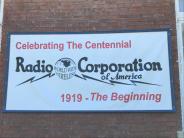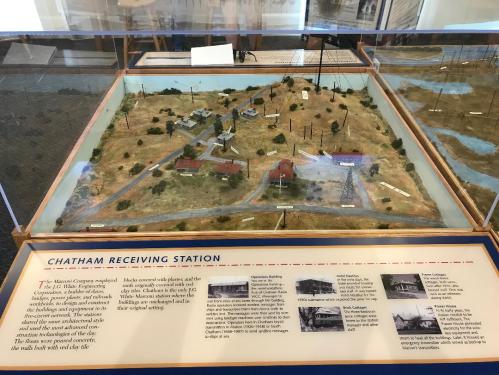 That headline graced the cover of the final edition of Express, the free commuter paper published by The Washington Post. It was created only 16-years ago, as a free paper for commuters in the DC area to read on their daily metro commute into Washington. It all came to an end on Thursday, September 12, 2019.
That headline graced the cover of the final edition of Express, the free commuter paper published by The Washington Post. It was created only 16-years ago, as a free paper for commuters in the DC area to read on their daily metro commute into Washington. It all came to an end on Thursday, September 12, 2019.
“I’ve always known this day would come.”
-Dan Caccavaro, Executive Editor
The 130,000 daily circulation Express launched in 2003. At that point in time, iPhones weren’t even on anyone’s radar and Facebook was something only students at Harvard were using to communicate with their fellow classmates. The world had yet to be invaded by Tweets, SnapChats or Instagrams.
Those of us in business were getting our first Blackberry smartphones that allowed us to read our emails while away from our offices.
Flip Video
When it debuted in 2007, the Flip Ultra became the best-selling camcorder on  Amazon.com. It was so popular the line was taken over by Cisco in 2009. Fifteen improvements were made to the Flip video camcorders, until in 2011 when Cisco shut down the entire Flip Video division.
Amazon.com. It was so popular the line was taken over by Cisco in 2009. Fifteen improvements were made to the Flip video camcorders, until in 2011 when Cisco shut down the entire Flip Video division.
From its introduction as the “Pure Digital Point & Shoot” video camcorder on May 1, 2006, till it vanished only four short years later, the reasons for its demise can be traced to the same root disruption that took down the Express.
The introduction of the iPhone on January 9, 2007.
Downton Abbey Movie (No Spoiler Alert Needed)
This past Friday, Sue & I went to see the Downton Abbey movie. The theater was packed. Many of the movie’s patrons had not been in a movie theater in years, but due to this series airing on PBS and now all six seasons being available on Amazon Prime, legions of fans were heading off to their local movie houses.
“Studios ignore the maturing audience at their peril.”
-Hugh Bonneville, Lord Grantham in Downton Abbey
It’s not just the movie studios who are ignoring mature audiences, other forms of media would be well advised to sit-up and take notice.
The movie continues asking the central question raised by the television series; how does a place like Downton Abbey fit into the modern era? I’m sure It’s the same question every form of traditional media is asking themselves.
The Radio Corporation of America (RCA)
 Following World War I, America saw a future in long-distance wireless telegraphy using high-power radio stations. In the United States, British owned Marconi Wireless Telegraph Company of America ruled the airwaves, but in order to stay competitive, it needed the new equipment for broadcast, manufactured by General Electric Company.
Following World War I, America saw a future in long-distance wireless telegraphy using high-power radio stations. In the United States, British owned Marconi Wireless Telegraph Company of America ruled the airwaves, but in order to stay competitive, it needed the new equipment for broadcast, manufactured by General Electric Company.
President Woodrow Wilson and the U.S. Navy decided that America needed to become the leader in global communications, convincing GE not to sell its equipment to Marconi, unless he agreed to give up his American based division to an all-American company.
That new company, RCA, would begin business on December 1, 1919. Its Chatham Radio, WCC (Wireless Cape Cod), became the largest U.S. maritime radio station. RCA succeeded in making America the leader in global radio communications.
2019 marks the 100th anniversary of the birth of Radio Corporation of America. RCA was reacquired by GE in 1985 who proceeded to breakup its assets. The RCA brand today is now owned by a French multinational corporation.
At one time, WCC was fully staffed with 30-people, most of them radio operators. Working around the clock, they would handle 1,000-messages a day. During the busy periods, as many as 10-operators would be on duty at the same time. The messages were all sent in Morse Code.
The radio station closed in 1997. The 100-acre site was sold to the town of Chatham, Massachusetts. The Chatham Marconi Maritime Center was founded in 2002 and operates the center as a museum and promotes the advancement of youth STEM education in the communications science.
Morse Code served as the international standard for maritime distress until 1999, and was replaced by the Global Maritime Distress Safety System. The French Navy ended its use of Morse Code in January 1997 with the final transmission “Calling all. This is our last cry before our eternal silence”. The final Morse code transmission in America was on July 12, 1999. The United States signed off its use with Samuel Morse’s original 1844 message, “What hath God wrought and the prosign “SK”. (The SK prosign was Morse code short-hand for “End of Contact” or “End of Work”.)
Commercial Radio Turns 100 in 2020
Next year, on November 2, 2020, commercial radio in America will celebrate its 100th birthday. That was the day that KDKA became the first commercially licensed radio station to begin broadcasting.
Which brings me back to the Downton Abbey movie, which asks the question of great estates that I feel also applies to commercial radio stations, “Are we right to keep it all going, when the world it was built for is fading with every day that passes?”
“Hope is a tease designed to prevent us accepting reality.”
-Dowager Countess of Grantham
One has to wonder how long the style of radio that many of us grew up with will still be around. In many ways, it’s already disappeared, such as people being replaced by computerized automation. It’s much the same path that the radio station WCC experienced before it was closed down and turned into a museum.
To paraphrase the words of the Dowager Countess in dealing with the world’s only constant, change, and putting it in perspective; today’s broadcasters are the future of radio. The broadcasters who came before us lived different radio lives, and our descendants will live differently again. They will take over and build upon a communications world where we left off. Soon, today’s broadcasters will be the old curmudgeons keeping everyone up to the mark. I’m sure the future of communications will be an exciting time. “I think I shall prefer to rest in peace.”
“At my age, one must ration one’s excitement.”
-Violet Crawley, Dowager Countess of Grantham

Commercial radio has ALREADY celebrated its 100th anniversary with the birthday of KCBS in San Francisco, which went on the air in April 1909 as “San José Calling”, and later licensed as KQW. The first commercial program was Sybil True’s “Little Ham Program” where the founder Charles Herrold’s wife did a weekly DJ show, doing tradeouts of 78 records for advertising on the station. The station itself was a commercial venture designed to promote Herrold’s electronics school.
LikeLike
Hi David,
Thanks for stopping by the blog and adding your thoughts.
I’m fully aware that many stations have made the claim of being first before KDKA, but the radio industry marks the beginning of commercial radio with the license issued to KDKA.
I’m sure it will always disputed as to who was first. These types of things usually are.
-DT
LikeLike
Let’s make sure Radio’s Audio Delivery Connects, Flourishes and Stands Out for the next 100!
LikeLiked by 1 person
Sounds like that’s what Gary Vee was trying to tell the broadcasters attending the Radio Show Clark.
-DT
LikeLike
The future of radio as a real-time delivery system of entertainment could be numbered. With the growing expectations of consuming entertainment on demand,audio entertainment will be no different. In time, I can see stations switching off the transmitter and delivering content exclusively through internet streams. Music stations curating on demand playlists and morning shows becoming entertaining podcasts. Delivery will be via the station’s app or through aggregate apps like Radio.com or iHeart. (Reception of streaming services will be in the dashboard screen in your car) Competition will, of course, be world wide and only the stongest identities will survive.
LikeLiked by 1 person
Thank You Professor Canter for stopping by the blog and adding your perspective.
I sense you are most likely correct.
-DT
LikeLike
If I may add: wait until all sports teams realize they can keep revenue from streaming games. (A few are already testing these waters.)
At pay rates in radio for producers and behind the scene techs, a sports team can replicate a broadcast team at a fraction of the cost it pays in broadcast fees. Fans will quickly follow, like they did for traffic reports and weather forecasts. News left the room a decade ago. Am I missing anything else that radio reports it delivers to the local community?
LikeLike
There are several definitions of “first broadcast station”, and even of “first commercial broadcast station”.
From what I’ve read, KDKA was the first station to take out a license for the purpose of broadcasting, the first station that wasn’t originally built for some other reason.
The first station to take out a “broadcasting license” was WBZ. (KDKA’s initial license was a “limited commercial” license, which could be legally used to broadcast commercial programs but that wasn’t the only use of such a license)
Some other claimants like WWJ and WHA made their first broadcasts under amateur or experimental licenses. They did eventually convert to broadcasting licenses, but only after KDKA. (of course, WHA has never been a *commercial* broadcaster)
Herrold’s broadcasts began at a time when licenses were not required. Did he broadcast audio before 1920? Certainly, but how do we know someone else didn’t do so even earlier? Do the record tradeouts count as “commercial broadcasting”? (sounds a lot like modern “underwriting announcements” on non-commercial stations)
I think there are multiple definitions of “first”. KDKA was the first station built with the intent of broadcasting, and I think that’s a pretty good place to set the birthdate of the industry.
LikeLiked by 1 person
Thank You for stopping by the blog and making a contribution to the discussion.
-DT
LikeLike
Last summer, our family (ages 9~79) visited the Marconi-RCA Wireless Museum in Chatham MA – a wonderful experience, from a hands-on “Enigma Machine” to vintage radio gear. Also the book “Code Girls” on sale there and everywhere that tells of thousands of American women decoders in WW2 who arguably, along with UK code-breakers, won the war!
LikeLike
Thank You Robin for stopping by the blog and sharing the details of your visit to the Marconi-RCA Wireless Museum. It really is something everyone should put on their bucket list to visit. Plus the ocean views from Old Cape Cod are a wonderful bonus.
-DT
LikeLike